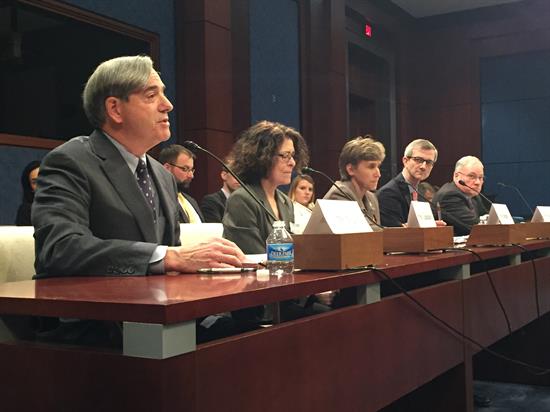The Financial Services Subcommittee on Capital Markets and Government Sponsored Enterprises, chaired by Rep. Scott Garrett (R-NJ), held a hearing on Wednesday to review proposals designed to reduce regulatory burdens so small companies can gain access to job-creating capital.
“Since 2011, this Subcommittee has held almost one dozen hearings to explore ways to facilitate capital formation, make the U.S. capital markets more attractive to companies, and increase investment opportunities for all investors. Most notably, this Subcommittee led the charge to implement one of the most meaningful updates to our securities laws in recent memory – the JOBS Act,” said Chairman Garrett. “But more still needs to be done. Therefore, it is incumbent upon Congress to provide sensible improvements to our securities laws to help small companies and startups access the capital they need to innovate and create jobs.”
Key Takeaways From the Hearing:
- Small businesses are the primary innovators and job creators of our economy, but the cost of regulation falls heaviest on them. Companies with fewer than 20 employees spend 45% more per employee complying with federal regulations than bigger businesses.
|
- In passing the Jumpstart Our Business Startups (JOBS) Act in 2012, Congress took an important step toward easing the regulatory burden on small businesses seeking access to capital markets. The parts of the JOBS Act that have gone into effect are already helping small businesses and emerging growth companies gain access to capital markets at a lower cost.
|
- But Congress needs to take further steps because many small companies still cannot access the capital they need to grow their businesses and create jobs. According to a Pepperdine University survey, “50% of respondents believe the current business financing environment is restricting growth opportunities while 42% of respondents believe it is restricting their ability to hire new employees.”
|
- The Subcommittee discussed 12 legislative proposals to enhance capital formation for small and emerging growth companies, reduce regulatory burdens, and improve the SEC’s administration of the capital markets. (Click HERE to learn more about these 12 bills.)
|
Topline Quotes from Witnesses:
“The JOBS Act has been so successful in the biotech industry because it represents a perfect balance of capital formation incentives and appropriately tailored regulations. This important law allows enhanced access to investors, increasing the capital potential of a public offering, and then reduces the regulatory burden on emerging growth companies, decreasing the amount of capital diverted from R&D… The search for capital in our industry is always ongoing – it does not end at the IPO. As such, I strongly support efforts by Congress and the SEC to enhance the capital formation ecosystem and incentivize funding for the next generation of breakthrough medicines.”
– Shane Kovacs, PTC Therapeutics, Inc.
“The initial cost to register with the SEC is often in excess of $100,000. Annual costs to comply with SEC investment adviser rules are often $50,000 or more per year. SBIA supports exempting small business investors from the Investment Advisers Act. The $150 million threshold that triggers SEC registration is too low and, at a minimum, should be raised. It is illustrative that one of the authors of Dodd-Frank, former Congressman Barney Frank, recently stated that Congress should consider amending the $150 million threshold with which private equity firms must register with the SEC; while further highlighting that ‘in the crisis situation, we erred on the side of maybe being too inclusive." – Gayle G. Hughes, Merion Investment Partners, on behalf of the Small Business Investor Alliance (SBIA)
“If these bills are not passed and if the JOBS Act is not fully implemented, economic growth and job creation will continue to underperform and stagnate for years to come.” – Thomas Quaadman, Center for Capital Markets at the U.S. Chamber of Commerce


